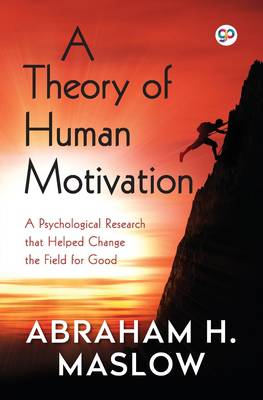
Bedankt voor het vertrouwen het afgelopen jaar! Om jou te bedanken bieden we GRATIS verzending (in België) aan op alles gedurende de hele maand januari.
- Afhalen na 1 uur in een winkel met voorraad
- In januari gratis thuislevering in België
- Ruim aanbod met 7 miljoen producten
Bedankt voor het vertrouwen het afgelopen jaar! Om jou te bedanken bieden we GRATIS verzending (in België) aan op alles gedurende de hele maand januari.
- Afhalen na 1 uur in een winkel met voorraad
- In januari gratis thuislevering in België
- Ruim aanbod met 7 miljoen producten
Zoeken
Omschrijving
'A Theory of Human Motivation' is the article that foremost introduced the hierarchy of needs by Abraham H. Maslow, an American psychologist. First printed in Maslow's 1943 paper, it is a motivational theory in psychology incorporating a five-tier model of human needs, often portrayed as hierarchical levels within a pyramid. Maslow outlined a new approach to comprehending the mind, saying humans are inspired by their need to fulfil a series of hierarchical needs, starting with the most essential first. His theories parallel many theories of human developmental psychology, some of which concentrate on describing the stages of growth in humans. He thought it is important for the advancement of psychology to identify, group, and rank them in terms of priority. It remains highly effective in the fields of strategy, marketing, and management, where it is believed that his ideas can lead to more elevated productivity if applied to the running of organizations.
Specificaties
Betrokkenen
- Auteur(s):
- Uitgeverij:
Inhoud
- Aantal bladzijden:
- 82
- Taal:
- Engels
Eigenschappen
- Productcode (EAN):
- 9789354993732
- Verschijningsdatum:
- 16/05/2022
- Uitvoering:
- Paperback
- Formaat:
- Trade paperback (VS)
- Afmetingen:
- 133 mm x 203 mm
- Gewicht:
- 95 g

Alleen bij Standaard Boekhandel
+ 27 punten op je klantenkaart van Standaard Boekhandel
Beoordelingen
We publiceren alleen reviews die voldoen aan de voorwaarden voor reviews. Bekijk onze voorwaarden voor reviews.









